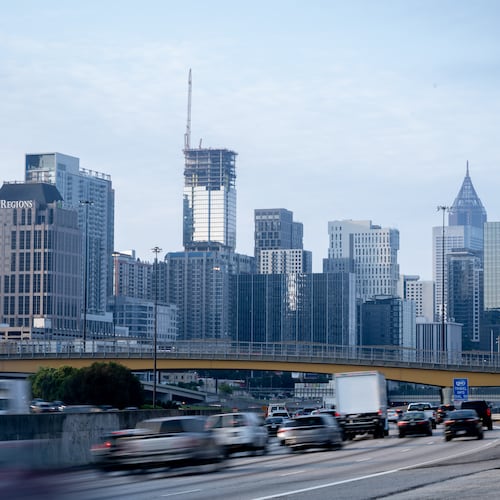The long, painful-for-renters rise of rents in metro Atlanta has ended, at least for the moment.
After a decade in which the region’s rents climbed — sometimes at a double-digit pace — new rents on average now are falling. It is a supply-side story: ongoing construction across the region means thousands of apartment units coming on the market to compete for tenants.
With that surge in supply, tenants have more choices and landlords suddenly find themselves with vacant units generating zero revenue. To fill as many apartments as they can, owners have increasingly been trying to entice potential renters with various concessions, the most obvious of which is a lower monthly payment.
“Occupancy has really dropped,” said Oleg Konstantinovsky, broker-manager with ProMove, an Atlanta-based service connecting renters with open apartments and moving services. “And there is still so much new inventory coming, which is great for the consumer.”
Barring a sudden wave of new residents looking to rent, that tilt in favor of tenants is likely to continue and accelerate.
As of October, nearly 23,000 units were in the “lease-up” phase, with landlords looking for tenants, according to ALN Apartment Data. But about 192,000 other units were under construction.
Much of the building is in the city of Atlanta, especially downtown, Midtown and Buckhead, said Konstantinovsky. “But construction is robust in McDonough. It’s robust in Suwanee. There’s also been a lot up in Cartersville.”
In some places — like Cartersville, he said — there’s so much pent-up demand, that hefty discounts won’t be needed to fill the new units. But in other places, like in Atlanta, the construction has outpaced population growth, setting the stage for rent cuts and other concessions, Konstantinovsky said.
The occupancy rate for metro Atlanta is 88.7%, down 3.7 percentage points from a year ago, according to ALN Apartment Data.
“Some owners are giving a full month’s rent for free, some are doing away with administrative fees,” said Rick Flatford, owner and agent at Arcadia Realty and Property Management in Kennesaw, which owns and manages properties around the metro area, as well as elsewhere in Georgia.
“The tenant pool is shallow,” he said. “You are aggressive with concessions because you want to lock down the really good tenants.”
Some of the market softness is seasonal. The yearly scramble to find apartments tends to ease as summer passes, according to Bruce McClenny, a principal with MRI ApartmentData, which tracks rental trends across the South and Southwest.
But the slide in occupancy is telling, he said: When that rate dips below 90%, the market advantage has shifted from landlords to tenants.
The interplay of supply and demand is a given in a typical market: If demand doesn’t change much, more supply means lower prices. And in many markets, that kind of change happens quickly as producers churn out more of what consumers want.
But in housing, it can take years for developers to secure zoning approvals and financing, contract with builders, who may have to struggle to find workers and then get something built.
So, that pendulum has a long arc.
After the collapse of the housing bubble and the recession of 2007-09, it was a long time before the region saw new construction. As late as 2013, there was still enough supply for rents to be falling.
But since then, population growth has outpaced construction and rents have been increasing.
A lot. Since early 2020, metro Atlanta rent has risen 22.5%, adding $368 to an average rent, according to Jon Leckie, a research analyst for Rent.com.
Those robust increases have been one of the big reasons that government inflation data looked so scary a year ago. Those numbers have been coming down partly because of the weakness of rent.
But Atlanta renters are still typically paying a lot more than they were, even if the region is nowhere near the top of the charts for high rent. Metro Atlanta ranks 24th-highest nationally, according to Zumper, which lists sales and rentals nationally.
The average rent for a two-bedroom apartment in Atlanta is $2,270, compared to more than $3,000 a month at any of the nine most expensive cities. New York, as usual, leads the pack with an average two-bedroom going for $4,780.
In the South, Atlanta has the fifth-highest rents for a one-bedroom apartment, behind Miami, Ft. Lauderdale, Charleston and Nashville, although Nashville’s two-bedrooms are cheaper than Atlanta’s according to Zumper.
And even within the region, there’s a range of rents, according to Zumper. The costliest apartments are in Alpharetta, followed by Atlanta and Brookhaven.
About the Author
Keep Reading
The Latest
Featured


